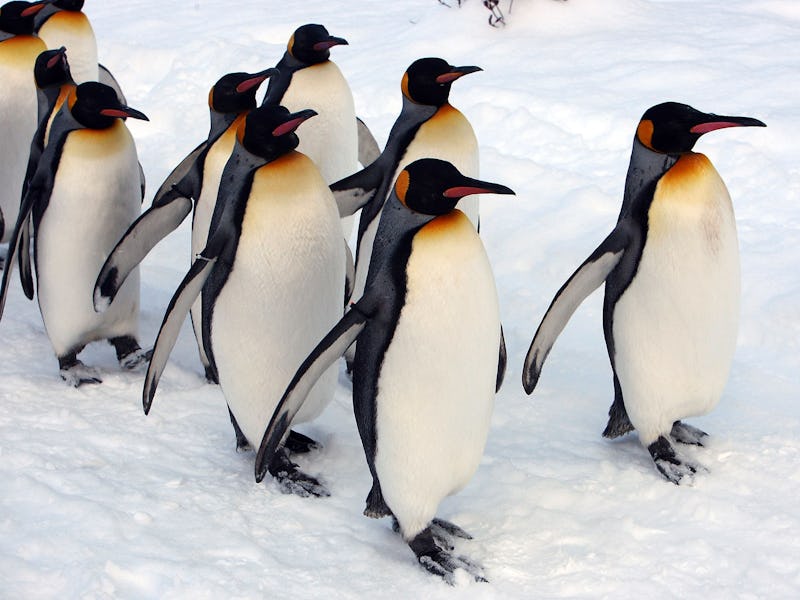What a Fat Penguin on a Treadmill Taught Us About Walking Steady
Packing on the pounds makes waddling penguins easy prey but also better parents.

The overweight penguins stumbling around the cold AF sub-antarctic Crozet Islands like tuxedoed Rick Rosses weren’t hard to catch. Biologists from the University of London studying the biomechanics of the waddle soon confirmed that the fat birds were less stable on their feet than their slimmer peers. All they had to do was place their overweight captives on treadmills.
They published a video of a penguin treadmill session, together with their research, Thursday in the journal PLoS One.
In the study, 10 overweight king penguins — those weighing more than a whopping 12 kg, or 26 pounds — were filmed walking on treadmills at a speed of 1 mph before and after a 14-day fast. The videos were used to identify differences in the penguins’ gait in their fat and fasted states.
The difference was obvious: Penguins were a lot more agile when they were slimmer. Fat penguins did a decent job of adapting to a bit of extra weight, but on the whole they were a lot less stable, making them much more likely to fall.
What this means in the wild is that fat birds are much easier targets for predators. But, the researchers found, there’s also an upside to packing on the pounds. Anyone who’s ever seen March of the Penguins knows that caring for a penguin egg — and there’s only ever one at a time — requires enduring an intensely long fast, so it’s crucial that parents have enough fat to keep them going.
But even before parenthood happens, penguins need to travel toward the colony — which is always stupidly far from the food source — to find a mate. With penguins, as with humans, relationships take time, and penguins need to sustain themselves in the interim.
King penguins, in particular, have a 14- to 16-month breeding cycle, and fasting during courtship can last for up to a month.
The research drives home the point that nature is all about trade-offs. As a penguin, do you pack on the pounds so you can fast longer, just in case it takes you longer than usual to find a mate? Or do you stay slim so you don’t get picked off by predators (or pesky scientists), increasing your chances to mate in the first place?
The scientists are careful to point out that the video of its chubby penguin has been sped up, so it appears to be running faster than it did IRL. And, they clarify, no penguins were pushed over during the process.